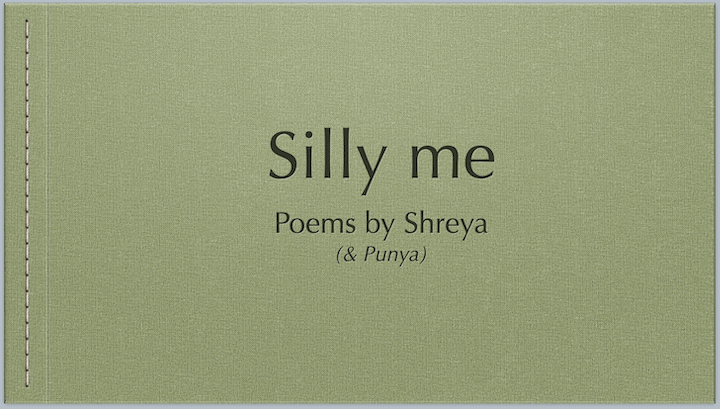TechTrends is a leading journal for professionals in the educational communication and technology field and is the official publication of the Association for Educational Communications and Technology (AECT). The current issue has 5 articles devoted to the TPACK framework (including one by yours truly with Matt and Kristen Kereluik). I am providing titles and key quotes from each (with a link to the article written by us).
Mishra, P., Koehler, M. J., & Kereluik, K. (2009). The song remains the same: Looking Back to the Future of Educational Technology. TechTrends, 53, 5. p. 48-53.
The TPACK framework emphasizes the role of teachers as decision makers who design their own educational technology environments as needed, in real time, without fear of those environments becoming outdated or obsolete. Using this approach, teachers do not attend to specific tools, but instead focus on approaches to teaching that endure through change in technologies, content, or pedagogies. Teachers with flexibility of thought, a tolerance for ambiguity, and willingness to experiment can combine traits that perfectly design and tailor their own educational content, pedagogical, and technological environments.
David Passig recently wrote on the topic of melioration, or “the competence to borrow a concept from a field of knowledge supposedly far removed from his or her domain, and adopt it to a pressing challenge in an area of personal knowledge or interest” (2007)… According to Passig, melioration is a skill that affords teachers the flexibility to experiment with a vast array of technologies to meet their specific educational needs. Novel frameworks and concepts like TPACK and Passig’s melioration are starting to look at educational technology in a new way. These new perspectives focus on overarching cognitive skills, competencies, and creativity rather than technical understanding and functional knowledge of specific technologies
Polly, D., & Brantley-Dias, L. (2009). TPACK: Where do we go now? TechTrends, 53, 5. p. 46-47.
TPACK gives a holistic perspective of the knowledge associated with effectively integrating technology into learning environments, accounting for what teachers know and what teachers do… TPACK provides a robust framework for thinking about teachers’ knowledge related to integrating technology effectively into learning environments. Articles in this special issue have raised questions related to our design of teacher education and professional development programs to develop the TPACK of K-12 teachers, and ways to research or examine teachers’ TPACK. innovation adoption.
Barbour, M., Rieber, L. P., Thomas, G., & Rauscher, D. (2009). Homemade PowerPoint Games:
A Constructionist Alternative to WebQuests. TechTrends, 53, 5. p. 54-59.
Students are required to use PowerPoint to construct home made content-based games. To construct these games, students write a game narrative or story (i.e., a short overview or context for the game that must fit on a single PowerPoint slide) and develop questions to provide the appropriate level of challenge to their games. These three pedagogical skills are required of students as they use a technology-based tool to construct games in a specific content area, and form the intersection envisioned by Mishra and Koehler with their TPCK framework. This combination of technological, pedagogical, and content knowledge provides a scalable example of good teaching with technology.
Cox, S., & Graham, C. R. (2009). Diagramming TPACK in Practice: Using an Elaborated Model of the TPACK Framework to Analyze and Depict Teacher Knowledge. TechTrends, 53, 5. p. 60-69.
The introduction of the TPACK model by Mishra and Koehler (2006) has had a profound impact on the field of educational technology. It has inspired teachers, teacher educators, and educational technologists to reevaluate their knowledge and use of technology in the classroom… Thus far, the explanations of technological pedagogical content knowledge and its associated constructs that have been provided are not clear enough for researchers to agree on what is and is not an example of each construct. Mishra and Koehler and others have provided definitions of TCK, TPK, and TPACK that articulate to some degree the centers of these constructs, however the boundaries between them are still quite fuzzy, thus making it difficult to categorize borderline cases. In order to help clarify these boundaries and facilitate study of TPACK in practice, this paper presents the key findings from a conceptual analysis of the TPACK framework.
Graham, C. R., Burgoyne, N., Cantrell, P., Smith, L., St. Clair, L., & Harris, R. (2009). TPACK Development in Science Teaching: Measuring the TPACK Confidence of Inservice Science Teachers. TechTrends, 53, 5. p. 70-79.
In this study we piloted an instrument for measuring confidence levels in four of the seven TPACK knowledge constructs: TPACK, TPK, TCK, and TK. The instrument was useful in helping SciencePlus program coordinators to see significant increase in the TPACK confidence of participants over the eight-month duration of the program. Analysis of the data also helped program coordinators recognize that more could be done to help classroom teachers develop TCK confidence by doing more to help them learn about content-specific technologies
that are used in doing science.
Nelson, J., Christopher, A., & Mims, C. (2009). TPACK and Web 2.0: Transformation of
Teaching and Learning. TechTrends, 53, 5. p. 80 – 86.
Web 2.0 technologies provide possibilities for sharing and building knowledge. Teachers who facilitate collaborative and interdisciplinary projects build on the unique strengths of individual students and encourage the sharing of ideas. In essence, they are teaching students to be life-long learners. The Internet and Web 2.0 technologies afford teachers ready access to collaborative, authentic opportunities for students to engage in meaningful experiences related to the curriculum. TPACK-competent teachers exhibit best practices in pedagogy, content, and technology.


Shouldn’t have jumped the gun! Patience is a virtue….
Matt, I just posted a blog post with that info… anyway, duplication isn’t necessarily a bad thing.
TPACK was also mentioned in the latest issue of T.H.E. Journal: http://thejournal.com/articles/2009/09/09/21st-century-teaching.aspx?sc_lang=en